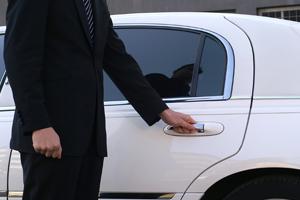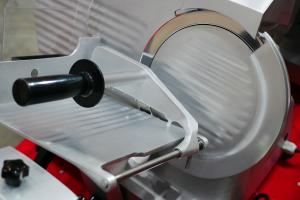What to do to keep your kitchen cooking
A fire in your restaurant can injure your employees and guests. It can also cause your business to shut down for repairs and harm your company's reputation. Here are some tips to keep your kitchen cooking:
Maintain your fire suppression system
- Service the system every six months.
- Make sure the caps are on the discharge nozzles — they protect the opening from being clogged by grease and debris.
- Is your system UL 300 compliant? It should be if you have deep fat fryers or your cooking processes produce grease laden vapors.
Clean your exhaust duct
- Clean filters and hood regularly.
- A build-up of grease within your exhaust system can lead to a fire. Use this chart to determine how frequently you should have the system cleaned by a professional service company:
|
Type/volume of cooking |
Frequency of inspection and cleaning |
|---|---|
| Equipment using solid fuels such as wood or charcoal | Monthly |
| Kitchens with high-volume operations such as 24-hour cooking, extensive frying, charbroiling or wok cooking | Quarterly |
| Kitchens with moderate volume cooking operations | Semiannually |
| Kitchens with low-volume cooking operations such as churches, seasonal business, or day camps | Annually |
Clean check your fryers
- Make sure your fryer is equipped with a high temperature shut-off switch — it will prevent your oil from overheating.
- Are your fryers located next to a gas stove, char-grill or other open flame appliance? If you answered yes and there is less than 16 inches of separation between the edges of the appliance, then you should have an 8-inch stainless steel baffle between the appliances.
Train your employees
- Show all employees how to manually activate the fire suppression system.
- Employees should know how to properly use fire extinguishers and where they are located.
- Emergency evacuation plans — they should know how to respond to an emergency and the steps to take to ensure the safety of guests and themselves.
Know the basics
- Provide Type K extinguishers for use on cooking fires.
- Maintain clear and uncluttered walkways and storage areas.
- Don't use extension cords or frayed electrical cords.
- Keep combustibles away from hot surfaces.
- Clean grill surfaces and kitchen equipment frequently.
- If you re-arrange equipment located under the hood, you may need to re-arrange the fire suppression system nozzles — contact the fire protection servicing company for an evaluation.
References and additional information
- Fire Safety Checklist for Commercial Cooking
- NFPA 96, Standard for Ventilation Control and Fire Protection of Commercial Cooking Operations
- OSHA Youth Worker Safety in Restaurants
Your Hanover Risk Solutions Consultant is available to assist you if you have questions or need help with fire safety in your kitchen.
This material is provided for informational purposes only and does not provide any coverage or guarantee loss prevention. The examples in this material are provided as hypothetical and for illustration purposes only. The Hanover Insurance Company and its affiliates and subsidiaries (“The Hanover”) specifically disclaim any warranty or representation that acceptance of any recommendations contained herein will make any premises, or operation safe or in compliance with any law or regulation. By providing this information to you, The Hanover does not assume (and specifically disclaims) any duty, undertaking or responsibility to you. The decision to accept or implement any recommendation(s) or advice contained in this material must be made by you.
LC NOV 2018 LC 12-217
171-0888 (1/14)
Related resources
What to do to keep your kitchen cooking
A fire in your restaurant can injure your employees and guests. It can also cause your business to shut down for repairs and harm your company's reputation. Here are some tips to keep your kitchen cooking:
Maintain your fire suppression system
- Service the system every six months.
- Make sure the caps are on the discharge nozzles — they protect the opening from being clogged by grease and debris.
- Is your system UL 300 compliant? It should be if you have deep fat fryers or your cooking processes produce grease laden vapors.
Clean your exhaust duct
- Clean filters and hood regularly.
- A build-up of grease within your exhaust system can lead to a fire. Use this chart to determine how frequently you should have the system cleaned by a professional service company:
|
Type/volume of cooking |
Frequency of inspection and cleaning |
|---|---|
| Equipment using solid fuels such as wood or charcoal | Monthly |
| Kitchens with high-volume operations such as 24-hour cooking, extensive frying, charbroiling or wok cooking | Quarterly |
| Kitchens with moderate volume cooking operations | Semiannually |
| Kitchens with low-volume cooking operations such as churches, seasonal business, or day camps | Annually |
Clean check your fryers
- Make sure your fryer is equipped with a high temperature shut-off switch — it will prevent your oil from overheating.
- Are your fryers located next to a gas stove, char-grill or other open flame appliance? If you answered yes and there is less than 16 inches of separation between the edges of the appliance, then you should have an 8-inch stainless steel baffle between the appliances.
Train your employees
- Show all employees how to manually activate the fire suppression system.
- Employees should know how to properly use fire extinguishers and where they are located.
- Emergency evacuation plans — they should know how to respond to an emergency and the steps to take to ensure the safety of guests and themselves.
Know the basics
- Provide Type K extinguishers for use on cooking fires.
- Maintain clear and uncluttered walkways and storage areas.
- Don't use extension cords or frayed electrical cords.
- Keep combustibles away from hot surfaces.
- Clean grill surfaces and kitchen equipment frequently.
- If you re-arrange equipment located under the hood, you may need to re-arrange the fire suppression system nozzles — contact the fire protection servicing company for an evaluation.
References and additional information
- Fire Safety Checklist for Commercial Cooking
- NFPA 96, Standard for Ventilation Control and Fire Protection of Commercial Cooking Operations
- OSHA Youth Worker Safety in Restaurants
Your Hanover Risk Solutions Consultant is available to assist you if you have questions or need help with fire safety in your kitchen.
This material is provided for informational purposes only and does not provide any coverage or guarantee loss prevention. The examples in this material are provided as hypothetical and for illustration purposes only. The Hanover Insurance Company and its affiliates and subsidiaries (“The Hanover”) specifically disclaim any warranty or representation that acceptance of any recommendations contained herein will make any premises, or operation safe or in compliance with any law or regulation. By providing this information to you, The Hanover does not assume (and specifically disclaims) any duty, undertaking or responsibility to you. The decision to accept or implement any recommendation(s) or advice contained in this material must be made by you.
LC NOV 2018 LC 12-217
171-0888 (1/14)
Related resources
What to do to keep your kitchen cooking
A fire in your restaurant can injure your employees and guests. It can also cause your business to shut down for repairs and harm your company's reputation. Here are some tips to keep your kitchen cooking:
Maintain your fire suppression system
- Service the system every six months.
- Make sure the caps are on the discharge nozzles — they protect the opening from being clogged by grease and debris.
- Is your system UL 300 compliant? It should be if you have deep fat fryers or your cooking processes produce grease laden vapors.
Clean your exhaust duct
- Clean filters and hood regularly.
- A build-up of grease within your exhaust system can lead to a fire. Use this chart to determine how frequently you should have the system cleaned by a professional service company:
|
Type/volume of cooking |
Frequency of inspection and cleaning |
|---|---|
| Equipment using solid fuels such as wood or charcoal | Monthly |
| Kitchens with high-volume operations such as 24-hour cooking, extensive frying, charbroiling or wok cooking | Quarterly |
| Kitchens with moderate volume cooking operations | Semiannually |
| Kitchens with low-volume cooking operations such as churches, seasonal business, or day camps | Annually |
Clean check your fryers
- Make sure your fryer is equipped with a high temperature shut-off switch — it will prevent your oil from overheating.
- Are your fryers located next to a gas stove, char-grill or other open flame appliance? If you answered yes and there is less than 16 inches of separation between the edges of the appliance, then you should have an 8-inch stainless steel baffle between the appliances.
Train your employees
- Show all employees how to manually activate the fire suppression system.
- Employees should know how to properly use fire extinguishers and where they are located.
- Emergency evacuation plans — they should know how to respond to an emergency and the steps to take to ensure the safety of guests and themselves.
Know the basics
- Provide Type K extinguishers for use on cooking fires.
- Maintain clear and uncluttered walkways and storage areas.
- Don't use extension cords or frayed electrical cords.
- Keep combustibles away from hot surfaces.
- Clean grill surfaces and kitchen equipment frequently.
- If you re-arrange equipment located under the hood, you may need to re-arrange the fire suppression system nozzles — contact the fire protection servicing company for an evaluation.
References and additional information
- Fire Safety Checklist for Commercial Cooking
- NFPA 96, Standard for Ventilation Control and Fire Protection of Commercial Cooking Operations
- OSHA Youth Worker Safety in Restaurants
Your Hanover Risk Solutions Consultant is available to assist you if you have questions or need help with fire safety in your kitchen.
This material is provided for informational purposes only and does not provide any coverage or guarantee loss prevention. The examples in this material are provided as hypothetical and for illustration purposes only. The Hanover Insurance Company and its affiliates and subsidiaries (“The Hanover”) specifically disclaim any warranty or representation that acceptance of any recommendations contained herein will make any premises, or operation safe or in compliance with any law or regulation. By providing this information to you, The Hanover does not assume (and specifically disclaims) any duty, undertaking or responsibility to you. The decision to accept or implement any recommendation(s) or advice contained in this material must be made by you.
LC NOV 2018 LC 12-217
171-0888 (1/14)
Related resources
What to do to keep your kitchen cooking
A fire in your restaurant can injure your employees and guests. It can also cause your business to shut down for repairs and harm your company's reputation. Here are some tips to keep your kitchen cooking:
Maintain your fire suppression system
- Service the system every six months.
- Make sure the caps are on the discharge nozzles — they protect the opening from being clogged by grease and debris.
- Is your system UL 300 compliant? It should be if you have deep fat fryers or your cooking processes produce grease laden vapors.
Clean your exhaust duct
- Clean filters and hood regularly.
- A build-up of grease within your exhaust system can lead to a fire. Use this chart to determine how frequently you should have the system cleaned by a professional service company:
|
Type/volume of cooking |
Frequency of inspection and cleaning |
|---|---|
| Equipment using solid fuels such as wood or charcoal | Monthly |
| Kitchens with high-volume operations such as 24-hour cooking, extensive frying, charbroiling or wok cooking | Quarterly |
| Kitchens with moderate volume cooking operations | Semiannually |
| Kitchens with low-volume cooking operations such as churches, seasonal business, or day camps | Annually |
Clean check your fryers
- Make sure your fryer is equipped with a high temperature shut-off switch — it will prevent your oil from overheating.
- Are your fryers located next to a gas stove, char-grill or other open flame appliance? If you answered yes and there is less than 16 inches of separation between the edges of the appliance, then you should have an 8-inch stainless steel baffle between the appliances.
Train your employees
- Show all employees how to manually activate the fire suppression system.
- Employees should know how to properly use fire extinguishers and where they are located.
- Emergency evacuation plans — they should know how to respond to an emergency and the steps to take to ensure the safety of guests and themselves.
Know the basics
- Provide Type K extinguishers for use on cooking fires.
- Maintain clear and uncluttered walkways and storage areas.
- Don't use extension cords or frayed electrical cords.
- Keep combustibles away from hot surfaces.
- Clean grill surfaces and kitchen equipment frequently.
- If you re-arrange equipment located under the hood, you may need to re-arrange the fire suppression system nozzles — contact the fire protection servicing company for an evaluation.
References and additional information
- Fire Safety Checklist for Commercial Cooking
- NFPA 96, Standard for Ventilation Control and Fire Protection of Commercial Cooking Operations
- OSHA Youth Worker Safety in Restaurants
Your Hanover Risk Solutions Consultant is available to assist you if you have questions or need help with fire safety in your kitchen.
This material is provided for informational purposes only and does not provide any coverage or guarantee loss prevention. The examples in this material are provided as hypothetical and for illustration purposes only. The Hanover Insurance Company and its affiliates and subsidiaries (“The Hanover”) specifically disclaim any warranty or representation that acceptance of any recommendations contained herein will make any premises, or operation safe or in compliance with any law or regulation. By providing this information to you, The Hanover does not assume (and specifically disclaims) any duty, undertaking or responsibility to you. The decision to accept or implement any recommendation(s) or advice contained in this material must be made by you.
LC NOV 2018 LC 12-217
171-0888 (1/14)





